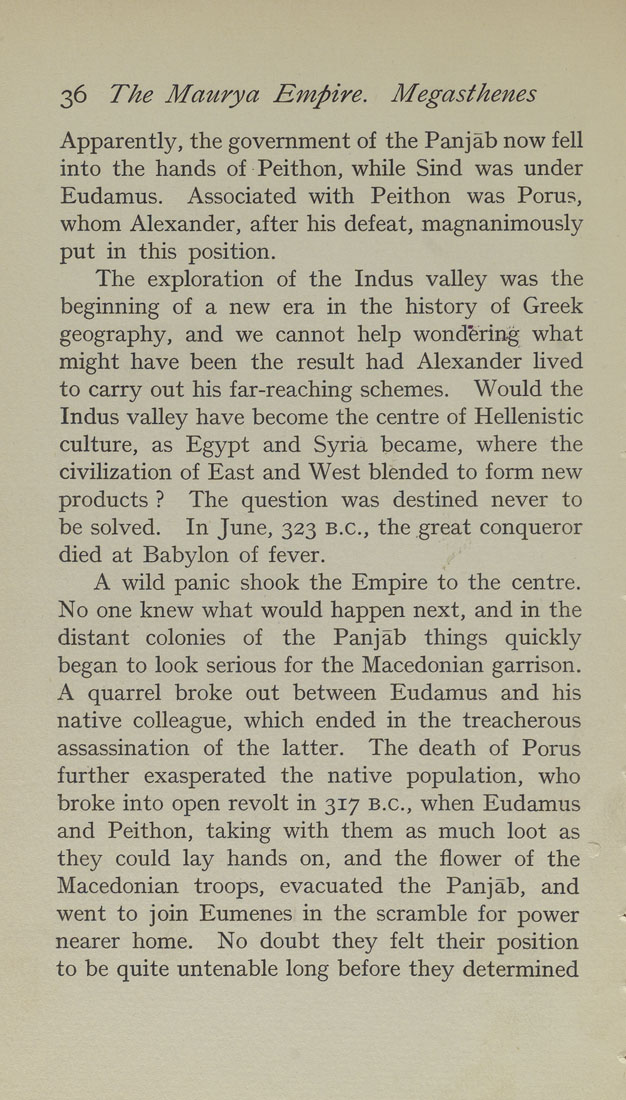36 The Maurya Empire. Megasthenes
Apparently, the government of the Panjab now fell
into the hands of Peithon, while Sind was under
Eudamus. Associated with Peithon was Porus,
whom Alexander, after his defeat, magnanimously
put in this position.
The exploration of the Indus valley was the
beginning of a new era in the history of Greek
geography, and we cannot help wondering what
might have been the result had Alexander lived
to carry out his far-reaching schemes. Would the
Indus valley have become the centre of Hellenistic
culture, as Egypt and Syria became, where the
civilization of East and West blended to form new
products ? The question was destined never to
be solved. In June, 323 B.C., the great conqueror
died at Babylon of fever.
A wild panic shook the Empire to the centre.
No one knew what would happen next, and in the
distant colonies of the Panjab things quickly
began to look serious for the Macedonian garrison.
A quarrel broke out between Eudamus and his
native colleague, which ended in the treacherous
assassination of the latter. The death of Porus
further exasperated the native population, who
broke into open revolt in 317 B.C., when Eudamus
and Peithon, taking with them as much loot as
they could lay hands on, and the flower of the
Macedonian troops, evacuated the Panjab, and
went to join Eumenes in the scramble for power
nearer home. No doubt they felt their position
to be quite untenable long before they determined
|








